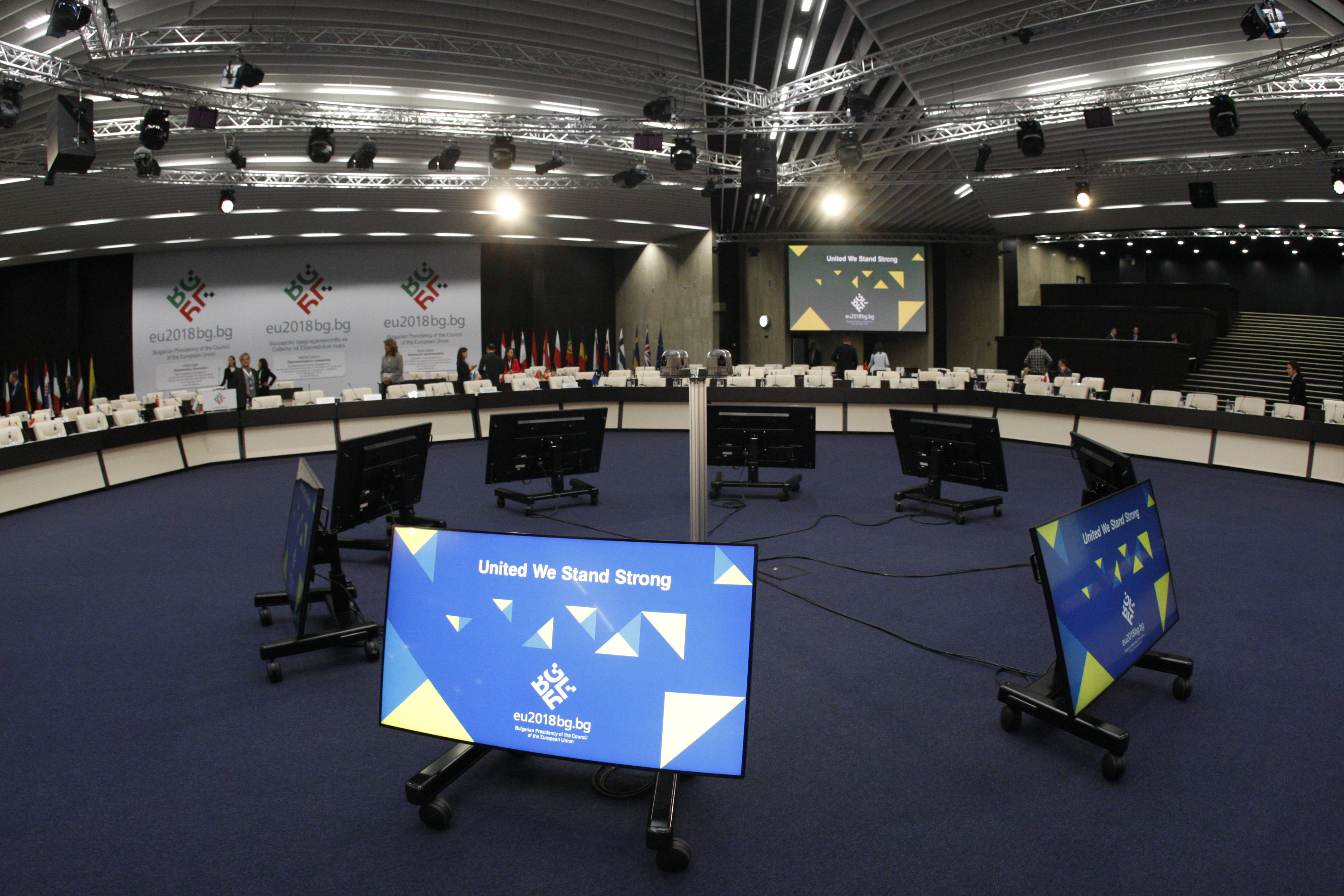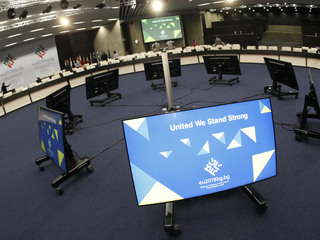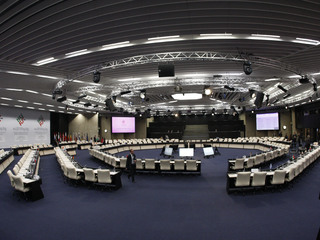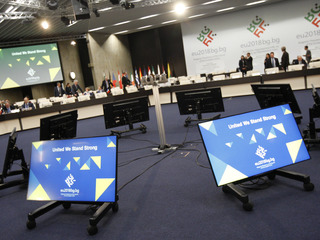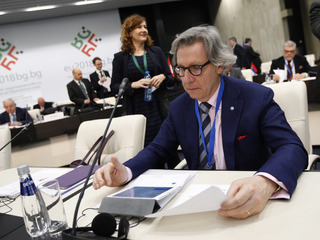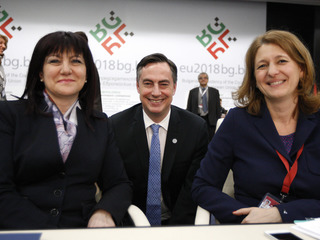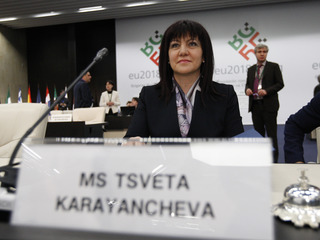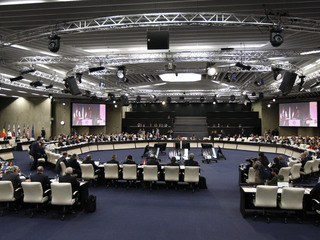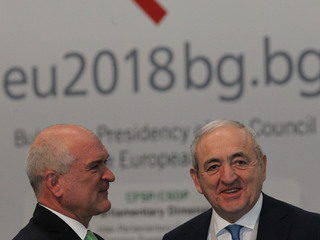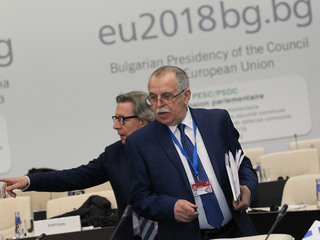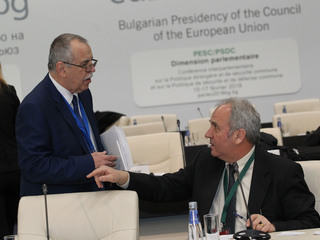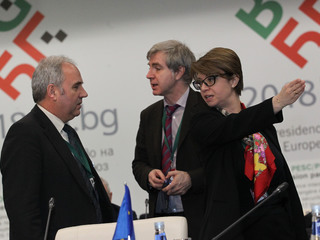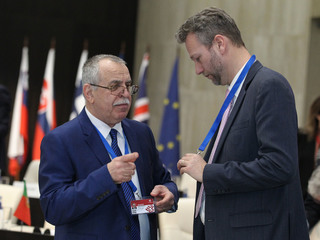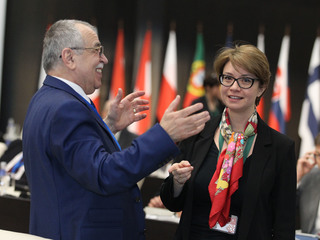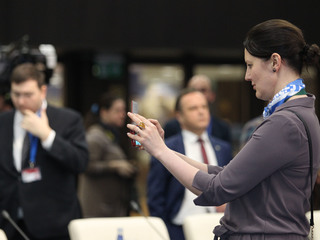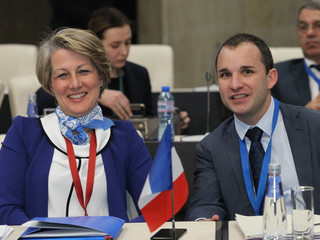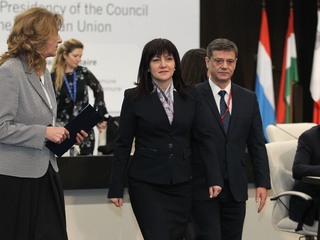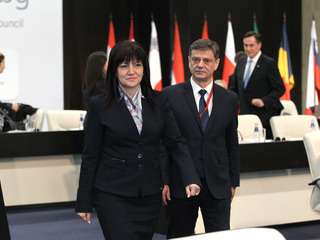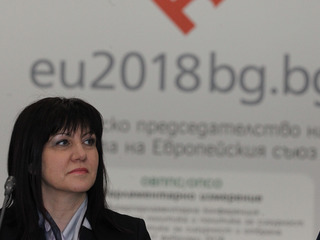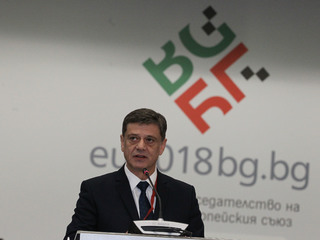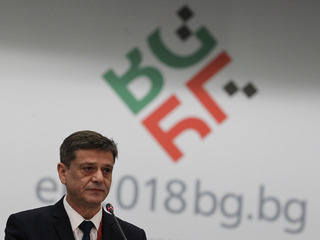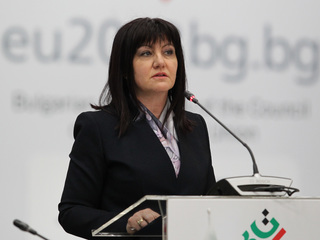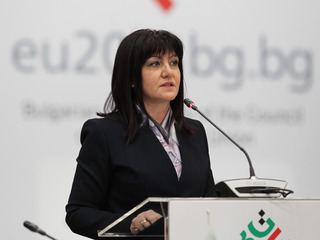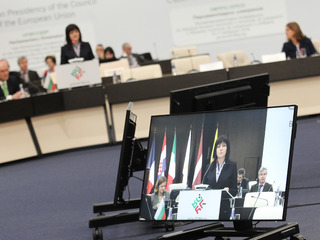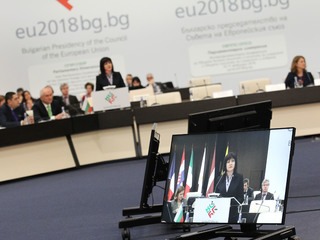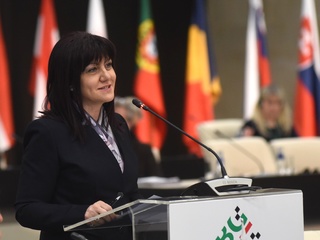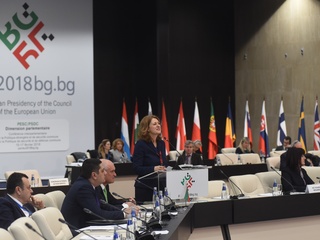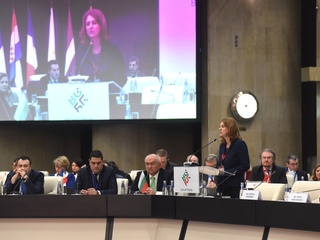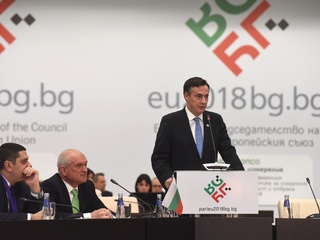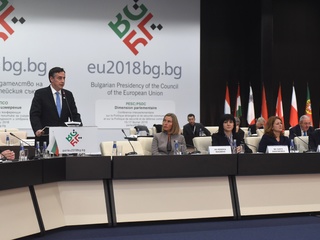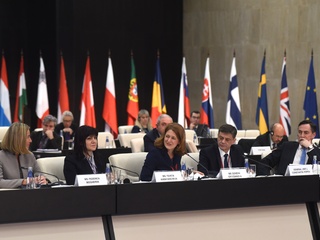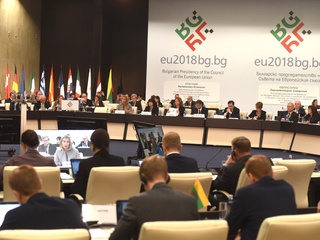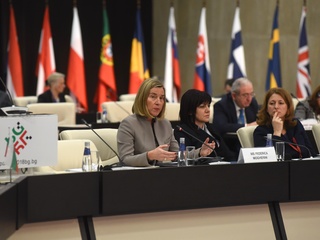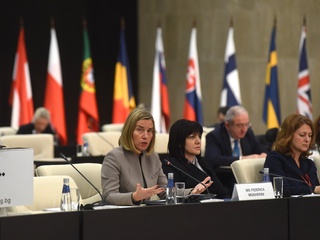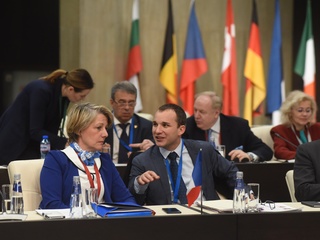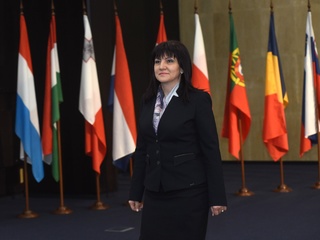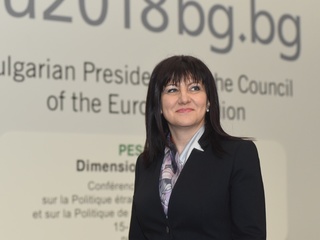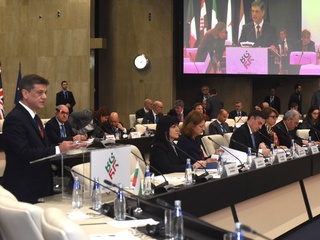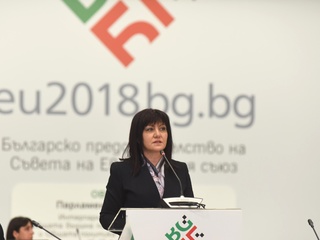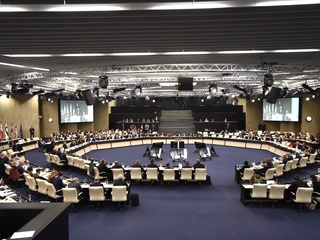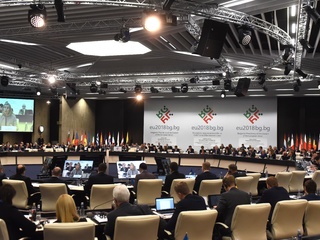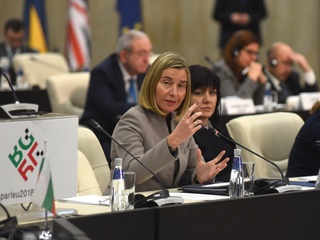The role of national parliaments and the European Parliament is particularly important in the current debate on the future of the European project and in particular in implementing the priorities of the EU Common Foreign and Security Policy. This was said by the National Assembly Speaker Ms Tsveta Karayancheva at the official opening of the Inter-Parliamentary Conference for the Common Foreign and Security Policy and the Common Security and Defence Policy.
"We hope that the idea of European unity is accepted by all Europeans. It is true that there are different views on how but not on whether to implement a more effective European cooperation. We are convinced that it is a dialogue that shapes the community ", said the Speaker of Parliament.
Tsveta Karayancheva pointed out that we need a more flexible and integrated approach, which includes strengthening the relations between the EU Member States in order to effectively combat terrorism, migration flow, as well as cooperate more actively in the field of defence. In the context of the Bulgarian Presidency priority of implementing an active policy towards the countries of the Western Balkans, the Speaker of the National Assembly stressed that these countries belong to the EU and the time of their accession to the Union depends only on their progress in meeting the membership criteria. We do not need new dividing lines in Europe but we need to build bridges - in the direct and figurative meaning, added the National Assembly Speaker.
In her opening speech, the Chairperson of the Foregn Affairs Committee of the National Assembly Ms Dzhema Grozdanova pointed out that the discussion on the future of the Common Foreign and Security Policy and the Common Security and Defence Policy was marked by a changing Europe and this was not news any more.
“Today, we are facing a different picture. European societies are no longer satisfied with what was enough before."
That is why one of the most important tasks for us, as parliamentarians, is to understand the change in public attitudes. Citizens are demanding something else: they want security. They understand that the situation in the world is different, and that the new times bring new dangers that can disrupt what we in Europe have achieved. Enhanced cooperation on security and defence is needed to protect the Union's external borders, strengthen peace in neighbouring countries and find solutions to international conflicts to the EU's interests", said Dzhema Grozdanova.
She added that the first step in this direction has been made with the Permanent Structured Cooperation (PESCO) in the field of security and defence. In addition, Dzhema Grozdanova pointed out that work should be done to speed up the exchange of information between intelligence services, as well as towards the establishment of constructive security relations with non-EU countries and the UK after Brexit.
“We do not need to look further than our front door if we are seeking to hone our skills in foreign and defense policy. More than anywhere else, the EU is competing for influence in the Balkans.
"There is a political momentum in the region to seize the opportunity and change the history of the Balkans: from a source of problems to a region that could be part of the solutions.” said Dzhema Grozdanova.
The Chairman of the Foreign Affairs Committee of the European Parliament, David McAllister, congratulated the hosts of the event - the Foreign Affairs Committee Chair Ms Dzhema Grozdanova and the Defence Committee Chair, General (ret.) Constantin Popov and thanked for the excellent organization. David McAllister highlighted the need for a coherent and comprehensive approach to the implementation of the Union's common foreign policy. The Chair of the European Parliament's Foreign Affairs Committee welcomed the priority of the Bulgarian Presidency of the Council of the EU to support the European integration of the Western Balkans and underlined the key role of national parliaments in this process. "Let us do everything that is within our power to ensure we enlarge the circle of effective democracies and not defective democracies", concluded David McAllister.
The conference is organized twice a year by the foreign affairs and defence parliamentary committees of the EU Member State holding the rotating presidency of the Council of the EU in close cooperation with the European Parliament.
